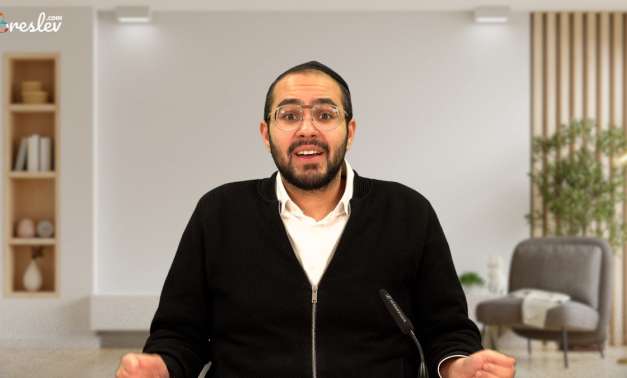
Childless
Some people remain all their lives on the level of "childless," never actualizing any of their internal powers. Many who do try get stuck along the way.

Part 2 of “The Journey,” by Erez Moshe Doron: an elaboration of Rebbe Nachman’s famous tale of “The Rabbi and the Only Son”
The stories of Rabbi Nachman of Breslev are very deep parables about the world, about the history of the nation of Israel and its future. They are also wondrously exact observations about the soul and psychic life of every single individual human being.
The commentary which will be given in the following pages is of the last type. It is based upon the writings of Rabbi Nachman and his disciples.
There is a story about a Rabbi….
As an analogy to the human soul, the Rabbi described in this story represents the human intellect. The intellect guides, educates and assists in the decisions of every person. A rabbi and instructor teaches his disciples knowledge and the ways of life.
Every person is given knowledge and the ability to judge. Through these qualities a person can direct his life, choose the correct and good way, and build a proper value-structure.
…who had no children.
A person’s children are those things which come out from him into the world.
In general everyone wants to see his children fulfill those things which he thinks important in life: his faith, his philosophy, his values. He wants a continuation of himself. It is a type of survival — that something of himself should endure, that something should be born from him that will continue to function in the world and influence it even after his death. It does not necessarily need to be physical children.
A book he has written, opinions which he has expressed and which have benefited others, a building or monument which bears his name — these are the types of testimonies which a person wants to leave after himself.
However, when a person is young and in the beginning of his life, then his intellect, his psychic powers and the talents which especially characterize him are hidden and dormant. These qualities will be his children, but they are almost entirely unexpressed when he is still young. In the parable the Rabbi had no children. He had not yet begun to actualize himself or to bring his inner abilities into full expression.
The Rabbi raised his only son….
In the analogy to the human psyche the son represents the soul. Rabbi Nachman reveals that this son is an only child because any person really has only one child — his soul.
All the psychic powers and intellectual achievements of a person flow from one font alone: the soul. It is the source of his life as well as the origin of his ability to fulfill his personal potential. Thus, the soul is the origin of anything of enduring value which might come out from a person. When a person succeeds in achieving something important in life, then he has actually erected a part of his soul.
In addition, it should be noted here that since this story speaks about the human soul and describes the spiritual quest with all its doubts and hesitations, as the action continues less and less people will be able to step into the shoes of the searching hero. Some people remain all their lives on the level of “childless,” never actualizing any of their internal powers. Many who do try get stuck in the beginning or in the middle of the way without any strength to continue onward, as we shall see in this story.
This son would sit in an elevated gallery and study, as was the custom among the wealthy gentlemen….
Here Rabbi Nachman is alluding to a deep point. The soul of every person is a “wealthy gentleman.” Within everyone’s soul there is great spiritual wealth. There is no such thing as a small person. There are only those who have not yet discovered their internal wealth or who have not yet learned to use it.
The beginning of the search along the spiritual path which a person wants to tread is, first of all, to become a student — to start to learn and study. The intention here is neither formal studies in order to get some kind of degree, nor a curriculum which collects facts, as is common in modern education. Rather, what is intended here is that study which a person wants to pursue in order to mature, in order to understand what is happening to him and to where his life is headed. This true study is possible only when a person is ready to ask himself objective questions about the meaning of life and its goals, and when he is ready for objective answers. This is the beginning of all spiritual paths.
This beginning itself expresses aspiration for spiritual advancement. It is already an ascent or “elevation.” One who does not ask questions, who does not thirst to know the meaning of life is like a dead person. He is asleep and completely enervated.
Because the Rabbi’s son is asking and seeking, he is sitting in the elevated gallery. But he is sitting, denoting a static situation, without movement or advancement. As long as a person does not take actual, active steps to find answers, then he is still sitting and motionless.
Unfortunately, many people these days are far away from even the most basic spiritual development. Most people will openly declare that their main interest in life is pleasure, to “live,” and nothing more. Even if they are already studying in some framework or institution, their purpose is usually not spiritual or mental development, but securing a degree for the advancement of their career or honor. In other words, they are merely seeking a smarter way to “live” and to get pleasure. They have no intention of thinking too deeply about questions like “Why am I alive?”
To be continued.
***
With sincere gratitude to www.levhadvarim.com













Tell us what you think!
Thank you for your comment!
It will be published after approval by the Editor.